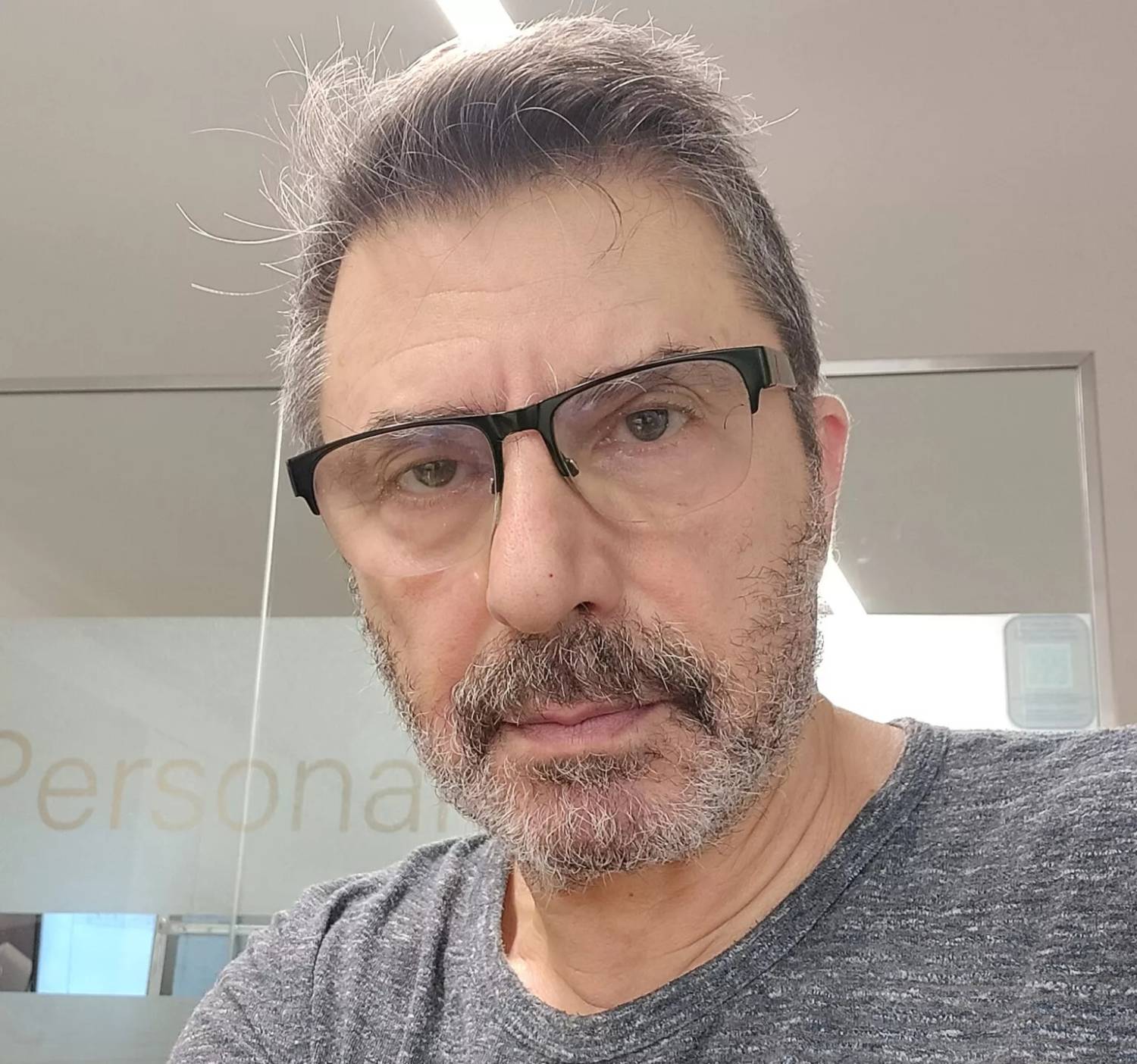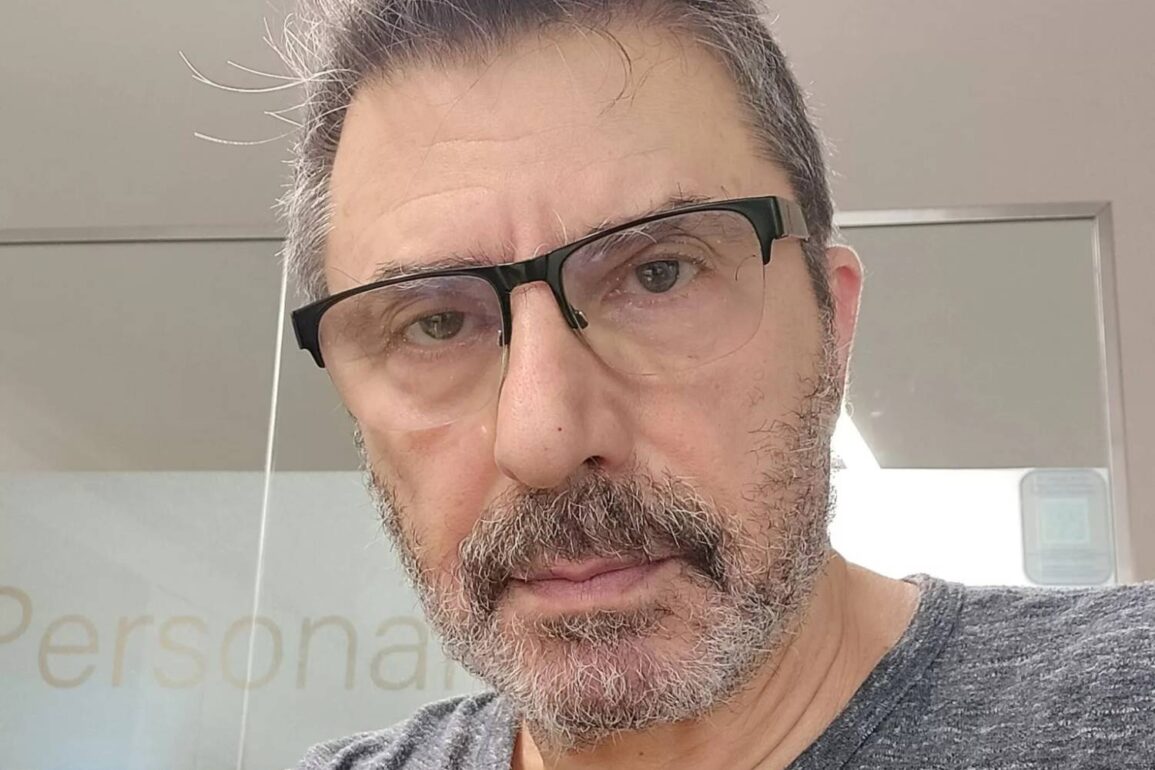
With the permission of the author Vivian Avraamidou Ploumbi and Dimitris Toumazis, we present poignant excerpts from the book “The Silence of Captivity,” featuring testimonies from Toumazis about his experiences during the 1974 war and his captivity in the Adana prisons.
Dimitris (Kakis) Toumazis was born in Famagusta in 1954, where he spent his early years. He graduated at the top of his class from the historic A’ Greek Gymnasium of Famagusta in 1972.
The Turkish invasion found him serving in the army. He fought in the initial phase of the war with the rank of lieutenant in the 399 Infantry Regiment and was captured on August 14, 1974, by the Turkish army and transferred to the Amasya prisons in Turkey.
After his release, he left as a refugee for England. He studied at the School of Architecture at the University of Greenwich (then Thames Polytechnic) while working to cover his expenses.
He later worked in his field of study for several years in England, Greece, and Cyprus. Concurrently, he channeled his entrepreneurial spirit into the clothing company he founded in London from 1982 to 1996 with great success. Today, he lives between Athens, Pelion, Limassol, and London.
In her book “The Silence of Captivity: A Conversation with Dimitris Toumazis, a Prisoner During the Turkish Invasion of Cyprus,” Vivian Avraamidou Ploumbi writes about Toumazis’s captivity conditions:
“I thought I knew Dimitris’s story; Kakis’s story; my compatriot, my dear friend. He was captured near the village of Mia Milia in the Lefkosia district during the second round of the invasion, along with his entire support unit in his regiment. However, for about two months, his name was missing from every Red Cross prisoner list. For about two months, his family grieved his absence without any information. Only when the first prisoners were released did the family learn that their son was in the Amasya prisons deep in Turkey. After 75 total days of captivity, on October 27, 1974, Kakis stepped off the last bus, with the final prisoner exchange, finally setting foot in his free homeland.”
Below, we present excerpts from the book, featuring Dimitris Toumazis’s testimonies from his war and captivity days. Testimonies with which the author develops a conversation. “I take Dimitris’s words word for word and touch my thoughts next to them in the way that feels most familiar to me; creating a documentary narrative,” she explains.
“WE DIDN’T KNOW WHERE THE ENEMY WAS; whether they were in front of us, behind us, north, east, west, absolutely nothing. We arrived there – it was night – and we were ordered to fire with mortars. I have within me… should I call it anxiety? A… I mean… Something… that causes me tremendous sorrow because we didn’t know whom we were hitting with those shells. Because our infantry advanced in front of us. We didn’t know the distance; we didn’t know if we were hitting our own or what we thought were the Turkish positions. I have this… It causes me sadness, it causes me… Should I say guilt? I can’t call it guilt because I was following orders, to fire the mortars. We had no way to check or communicate with the soldiers in front of us to inform us if our shells were indeed reaching the Turkish line or hitting our own troops. I have this big question if we were hitting our own. Because we had no means of communication, no visual communication, no auditory, nothing. This question will stay with me forever. No one can solve this question for me. Because we lost many boys there.”
“THEY PUT US IN TRUCKS AND TOOK US TO ADANA, to some prisons. I remember they put us in an inner courtyard with a hose to wash ourselves, and they would wash us with the hoses. That’s it. I don’t remember anything else.”
“I DON’T KNOW HOW IT HAPPENED, WHAT IT WAS, IF IT WAS A KICK or if it was with the rifle that hit me here on the cheekbone. If I’m not mistaken, on the right cheekbone, because, as they had put me on my back to get off the bus – I mean, they pushed me out, I fell down, and someone hit me with the rifle. And I fainted and found myself… I woke up in a cell. Alone, though. They put me in isolation because I was an officer.”
“THE NIGHTS WERE VERY VERY DIFFICULT because I couldn’t see, as there was a window very high up, a small little window, but I heard crying, voices from everyone – from women, children, I imagine men too, but mostly women’s voices – who were all, who had been gathered from various places and brought there as… They weren’t all prisoners. I think at some point they released the women and children, but I simply have this auditory memory… Those voices, those cries…”
“WITH BLINDFOLDED EYES AND HANDS tied, I heard them mercilessly beating the others, but they didn’t touch me. I WENT INSIDE MYSELF.”
“THE FIRST DAY I ARRIVED IN LONDON and saw my mother… We lived in a two-story house. My mother greeted me, let’s say, and said, ‘I’m going upstairs. I can’t; I’m going upstairs.’ And she went and locked herself in her room. And she never spoke to me about it again.”
Elefthera, April 21, 2024.
This post was originally published on this site be sure to check out more of their content.









